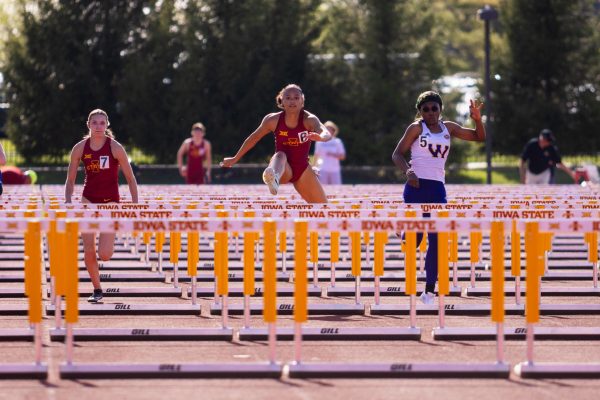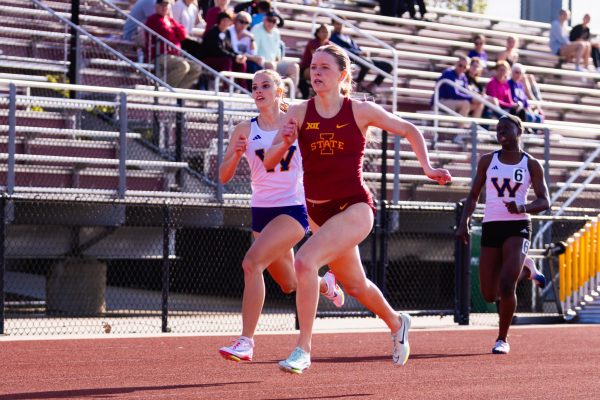Tae kwon do student kicks way to top
September 24, 2002
Editor’s note: This story is the fifth in a weekly series profiling “Hidden Stars” across campus. A “Hidden Star” is someone who doesn’t normally get recognized but who excels in club sports, intramurals or other recreational activities. The series will run on every Tuesday throughout the semester. If you’d like to nominate someone to be featured as a “Hidden Star,” e-mail that person’s name, phone number, e-mail address and a brief paragraph about why he or she should be recognized to [email protected].
As a new student at Iowa State, Heidi Reesink was searching for something new to get involved in.
In January of 2000, Reesink joined the karate club and began learning the Korean martial art called tae kwon do.
“I experienced a few other clubs at Iowa State, but this is the one I really had a passion for,” Reesink said.
Reesink, now a senior at Iowa State, has accomplished a great deal as a martial artist.
She is currently a black belt and has competed both nationally and internationally in World tae kwon do Federation style tae kwon do.
As a freshman, Reesink joined the club with no experience, but has matured quickly within the field.
Recently, she was chosen by the State of Iowa Tae Kwon Do Association to be the lone female representative from Iowa at a weeklong Olympic Training Seminar in Colorado Springs, Co.
One male competitor was also chosen to attend, Reesink said.
Reesink will also be competing in the National Collegiate tae kwon do Championships Nov. 1-2 in Puerto Rico.
The ISU Karate Club president, Irene Faass, said she will represent Iowa State well.
“We have very high hopes for her at the national level,” Faass said.
“She’ll make us proud no matter what.”
The training for the event is very intense and extensive, beginning three months in advance with Master Yong Chin Pak.
“It’s really amazing to train with Master Pak,” Reesink said.
In addition to the regular one- hour Monday, Wednesday and Friday club practices, the national competitors have three early morning running practices, three more general practices and one additional forms practice each week.
“Heidi gives 110 percent at every workout,” Faass said. “She works hard to make each technique better.”
The practices are essential to learning the two parts of the competition, which consist of forms and Olympic style sparring.
“She’s a gold medalist in both forms and sparring,” Faass said. “And she works hard for it.”
Forms are the art of tae kwon do, where a competitor presents a designated form to the judges.
“This competition is based mainly on balance, style, flexibility and focus,” Reesink said.
Olympic style sparring, ultimately, is fighting within limitations.
The majority of this segment of the competition is kicking in specific areas of the body and punching occasionally.
“We can’t do all the techniques in sparring that we perform in class for safety reasons,” Reesink said.
Although Reesink has accomplished a great deal, she is still striving to reach the next level. She said before moving up to the next belt, many new techniques must be learned and a test must be completed.
“There is an increased responsibility for each belt,” Reesink said.
One expectation of the higher belts is educating the lower belts.
Within the club, members agree that this responsibility is not an obligation, but an honor and a great opportunity to give something back to the club, Reesink said.
“A lot of people took additional time to help me with specific parts of sparring and forms,” she said.
Along with learning new techniques, the Korean terminology used in tae kwon do must be mastered as well.
“We get so much practice with it both in and out of class, that it’s not too hard to learn,” Reesink said.
















